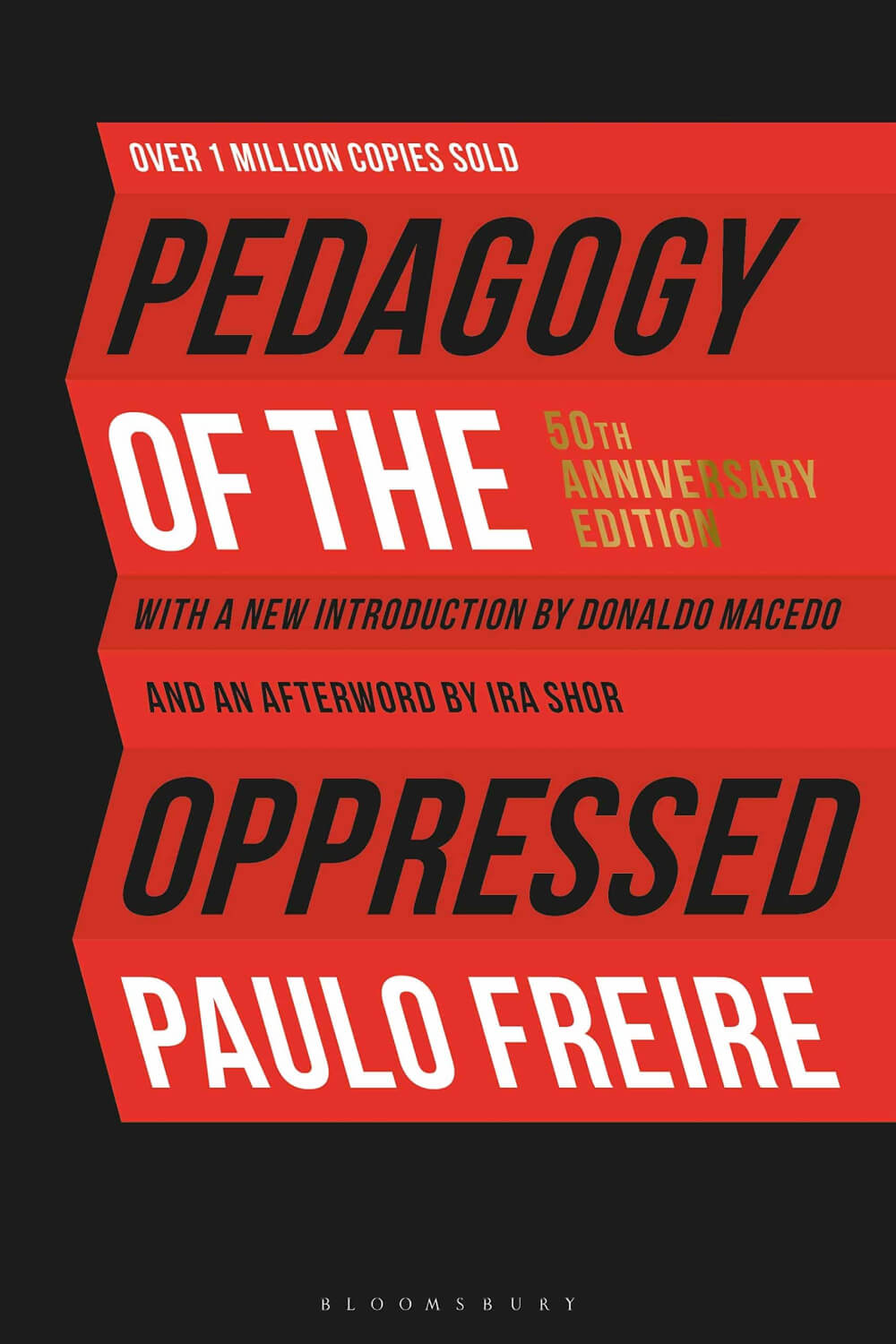
- Link
- Amazon Link
- Creator(s)
- Paulo Freire
- Publisher
- Bloomsbury Academic
- Year
- 2018
- Started
- Monday, April 3, 2023
- Finished
- Thursday, April 13, 2023
- Time Spent
- 6.5hrs
This book, while comparable in length to other books I've been reading, was difficult to read for quite a few reasons.
- The writing is wholly academic, and as such it wasn't always easy to parse on first read. I found myself rereading often.
- It contained a lot of words I'd never encountered before, so I spent some of my reading time each day learning new vocabulary.
- Some words I did know were used in contexts that confused me, so some time was spent looking those words up too!
- Fidel Castro is referred to as a revolutionary leader, and I had not heard that before, so I spent some time reading up on Castro.
- The subject matter and ideas in this book are heavy, but important. I wanted to give them time to breath and rest, and myself time to digest and comprehend, on my way to understanding.
That said, I really enjoyed this experience, and would recommend it if you are in a place where you are ready for it, or if you want to grow your mindset, especially if you grew up white in the United States.
Initially, I thought it was strange that the book was written in a way to be so inaccessible to the people who might find it the most helpful. I began to think about all the knowledge that is gate-kept behind education and academia and that made me angry. But, as I continued reading I started to think, maybe the message isn't for all people. I know I will be deconstructing that idea for some time to come.
Words
The following are words I didn't know: pedagogy, praxis, solipsistic, latifundium, conscientização, priori, dialogical, limit-acts, didactic, revanchist, posteriori, proletariat, and syncretic.
And these are the words I knew, but had to look up because the context was confusing: propounded, Raison d'être, demarcation, libertarian, concomitant, and populism.
Quotes
For the oppressors, there exists only one right: their right to live in peace, over against the right, not always even recognized, but simply conceded, of the oppressed to survival. And they make this concession only because the existence of the oppressed is necessary to their own existence.
Those who authentically commit themselves to the people must re-examine themselves constantly.
on students; The more completely they accept the passive role imposed on them, the more they tend simply to adapt to the world as it is and to the fragmented world view of reality deposited in them.
The solution is not to “integrate” them into the structure of oppression, but to transform that structure so that they can become “beings for themselves”
Liberation is a praxis: the action and reflection of men and women upon their world in order to transform it
Hence in the name of preservation of culture and knowledge we have a system which achieves neither true knowledge nor true culture
The means used are not important; to alienate human beings from their own decision-making is to change them into objects
To simply think about the people, as the dominators do, without any self-giving in that thought, to fail to think with the people, is a sure way to cease being revolutionary leaders
The unity of the oppressed occurs at a human level, not at the level of things.
Leaders who do not act dialogically, but insist on imposing their decisions, do not organize the people—they manipulate them.